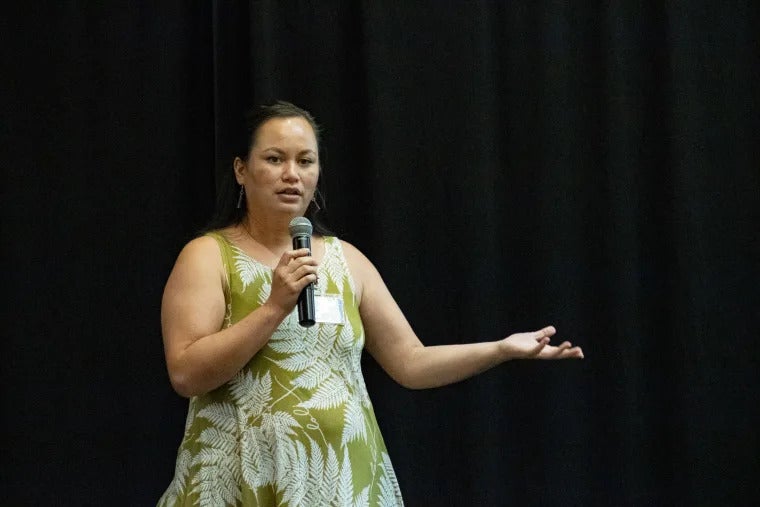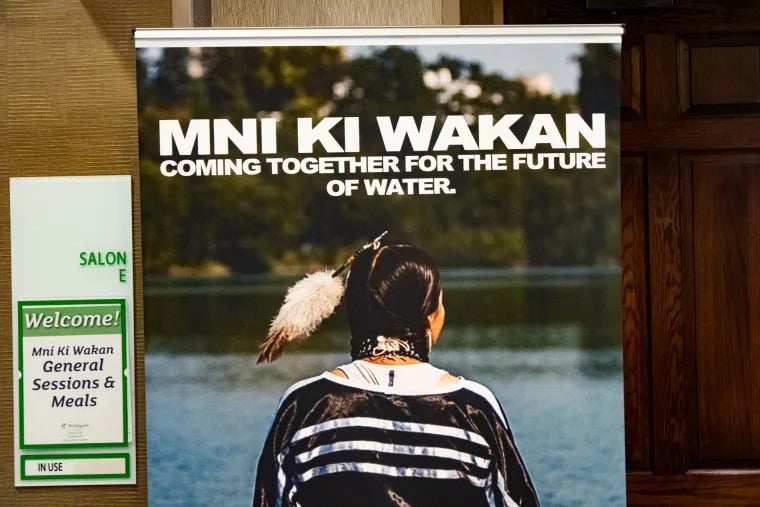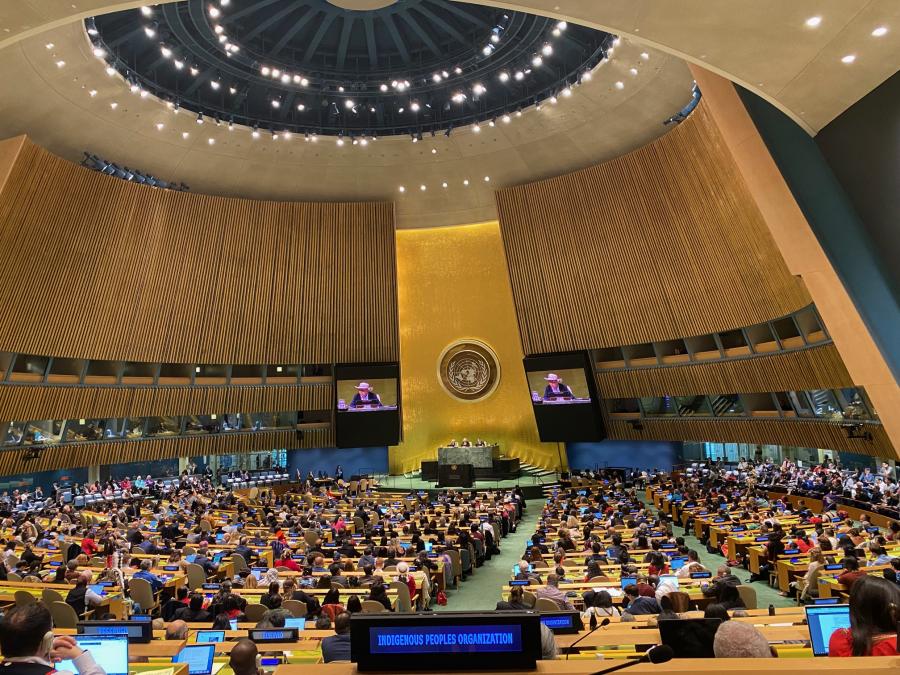
By Amelia Schafer, ICT + Rapid City Journal, reposted with permission
RAPID CITY, S.D. – What started as an idea from Dakota and Lakota elders has now entered its fifth year. The annual Mni Ki Wakan (MKW) Summit has grown to unite Indigenous water specialists from around the globe.
This year’s theme was Indigenous water justice and dismantling water colonialism.
The summit also served as a safe space for Madeline McKeague, Kanaka Maoli (Native Hawaiian), who is grieving from the destruction of the Lahaina wildfires.
During the two-and-a-half-day summit from Aug. 15-17, Indigenous water protectors, water department managers, scientists and innovators discussed and collaborated. Presenters came from Chile, New Zealand, Canada and Hawai'i to discuss water rights issues facing their different communities.

Sharde Mersberg, Native Hawaiian, presented at the 2023 Water Summit about the dangers posed by the Red Hill Underground Fuel Storage Facility on the island of Oahu. In 2021, the Hawai'i State Department of Health issued an emergency order to close the facility after drinking water contamination. (Photo by Amelia Schafer for ICT/Rapid City Journal)
“Indigenous peoples are excluded from the decision-making processes, from the agenda setting, and from the resources of those water rights,” LaPointe said. “And so what we're also about is disrupting that global narrative of water colonialism, not just at the global level, but from the national and local level, and the only way to do that is just to consistently come together.”
As the advocacy specialist for the Council for Native Hawaiian Advancement, McKeague came from Hawaii to discuss the Red Hill Underground Fuel Facility with Sharde Mersberg, also Native Hawaiian, of the Sierra Club.
The Red Hill facility, which was built in Honolulu in 1943, has begun to degrade and leak into the nearby aquifer, contaminating drinking water supplies.
“We have had some of the worst contaminations over the past few years because the more time that has passed, the worse the tanks have gotten. They further degraded, and little to nothing had been done about it while it continued to poison the waters and poison the lands,” McKeague said.
Given the recent wildfires in Lahaina, McKeague also had to tweak her presentation to include information about the cause of the fires and its colonial roots.
Lahaina used to be the capital of Hawaii and a very important location for Native Hawaiians, McKeague said. What used to be wetlands is now overrun with hotels and plantations, causing the land to dry and become arid.

This year’s Mni Ki Wakan Water Summit in Rapid City was the fifth time the conference was held. The summit gives Indigenous scholars, water defenders, and knowledge keepers a platform. (Photo by Amelia Schafer, ICT/Rapid City Journal)
On a local level, presentations included a discussion by the Black Hills Clean Water Alliance on mining claims in the sacred Black Hills and treaty obligations. The alliance reported that 20 percent of the Black Hills is claimed by mining companies and said that number is only going to increase.
“That’s an important detail not just for Indigenous people but for all South Dakotans,” LaPointe said.
Presenters discussed the implications of climate change, rising sea levels and other elements that impact Indigenous communities globally.
The summit ended Thursday with a water ceremony.
This story is co-published by the Rapid City Journal and ICT, a news partnership that covers Indigenous communities in the South Dakota area.
Amelia Schafer is the Indigenous Affairs reporter for ICT and the Rapid City Journal. She is of Wampanoag and Montauk-Brothertown Indian Nation descent. She is based in Rapid City. Follow her on Twitter @ameliaschafers or reach her by email at amelia@ictnews.org



